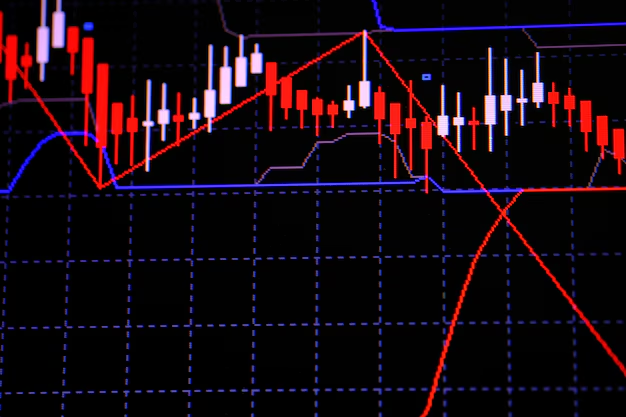Unraveling the Mystery: Why Did the Stock Market Drop Today?
If you're checking your phone or computer and noticing a significant dip in the stock market today, you're not alone. Investors worldwide are constantly tuned to news of market fluctuations. But what's behind such a drop, and why does it seem to catch everyone off guard? In this article, we'll explore the reasons behind a sudden market drop, examine related subtopics, and provide practical insights to help you navigate such scenarios with confidence.
📉 Understanding the Anatomy of a Stock Market Drop
A drop in the stock market can be influenced by multiple factors, ranging from economic data and corporate earnings to geopolitical events and investor sentiment. These elements are not isolated; they often interact to create a more significant impact than any single factor could.
Economic Indicators
Economic indicators serve as a litmus test for the market's health. Events such as a disappointing jobs report, slower GDP growth, or rising inflation can instigate fear among investors, prompting them to sell off their stocks and exit the market.
Key Economic Influences:
- Interest Rates: When interest rates rise, borrowing becomes more expensive, potentially slowing economic growth and prompting investors to reassess their risk.
- Inflation: Rising inflation can erode purchasing power, leading to an increase in production costs and squeezing company profits.
Corporate Earnings Reports
Corporate earnings are another pillar of stock market stability. If major companies announce earnings that fall short of expectations, it can lead to a wave of sell-offs. Investors may perceive this as a sign that economic conditions are weakening.
Geopolitical Events
Turbulence on the global stage can cast long shadows over the market. Events such as trade disputes, military conflicts, and elections in powerful nations can create uncertainty, leading investors to seek safer, more stable assets.
🧐 The Ripple Effect: How Investor Sentiment Shapes the Market
Emotion plays a significant role in the stock market. When investors react to news with fear or overconfidence, it can lead to exaggerated market movements.
Fear vs. Greed
Investor sentiment is often summarized by the fear and greed index. High levels of fear can result in a rapid market decline as investors rush to liquidate positions, while extreme greed can contribute to unsustainable rallies.
🔍 Case Studies: Historical Market Drops
Looking to history offers valuable lessons. While every market drop has its unique characteristics, certain patterns emerge.
The Dot-Com Bubble (2000)
A period marked by speculative investments in technology companies with unproven business models. As reality set in and companies failed to deliver expected earnings, the bubble burst, leading to a prolonged market downturn.
The Financial Crisis (2008)
A devastating collapse ignited by the housing market crash and mortgage-backed securities, it underscores the importance of regulatory oversight and financial transparency.
🌐 Connecting the Dots: Global Events and Market Reactions
Stocks don't exist in a vacuum; global events can significantly sway markets.
Trade Tensions
Trade tensions between significant economies can lead to uncertainty over tariffs and international trade policies, affecting multinational companies' profitability.
Political Shifts
Policies and leadership changes can reshape market dynamics. Brexit and changes in U.S. taxation policies serve as prime examples where investors had to recalibrate their expectations.
📊 Practical Strategies for Investors
Understanding the causes of market drops equips investors with strategies to manage their portfolios proactively.
Diversification
Diversification involves spreading investments across various assets, reducing reliance on any single investment. This strategy can cushion against market volatility.
Long-term Perspective
Adopting a long-term perspective helps mitigate panic selling. Historical data suggests that markets tend to recover over time, rewarding patient investors.
Stay Informed
Keeping abreast of financial news and market analysis is crucial. Regularly reviewing economic reports and expert opinions can aid in making informed decisions.
📝 Quick Reference Guide: How to Navigate a Stock Market Drop
Here's a concise, visually appealing guide to help you stay on top:
- 📊 Monitor Key Indicators:
- Economic reports, interest rate changes, and inflation statistics.
- 📈 Understand Corporate Earnings:
- Watch for earnings reports from major players.
- 🌐 Be Aware of Global News:
- Geopolitical events and trade policies.
- 😌 Manage Emotions:
- Recognize the influence of fear and greed.
- 🔍 Learn from History:
- Study past market downturns for guidance.
- 🛡️ Embrace Diversification:
- Spread investments to minimize risk.
- ⏱️ Focus on Long-term Goals:
- Avoid reacting to short-term fluctuations.
- 👂 Stay Informed:
- Regularly consume reputable financial news.
🎯 Concluding Insights
Understanding why the stock market dropped today involves piecing together various economic, corporate, and geopolitical factors while acknowledging the role of investor sentiment. By equipping yourself with the right information and strategies, you can navigate market fluctuations with confidence and poise. Remember, market downturns, while unsettling, are a natural part of the investment landscape and offer learning opportunities for savvy investors.

Related Topics
- Did The Stock Market Crash
- Did The Stock Market Crash Today
- How Did The Stock Market Close Today
- How Did The Stock Market Do Today
- How Did The Stock Market End Today
- How Did The Stock Market Finish Today
- How Do You Make Money In The Stock Market
- How Does The Stock Market Work
- How Is Stock Market Doing Today
- How Is The Stock Market Doing
